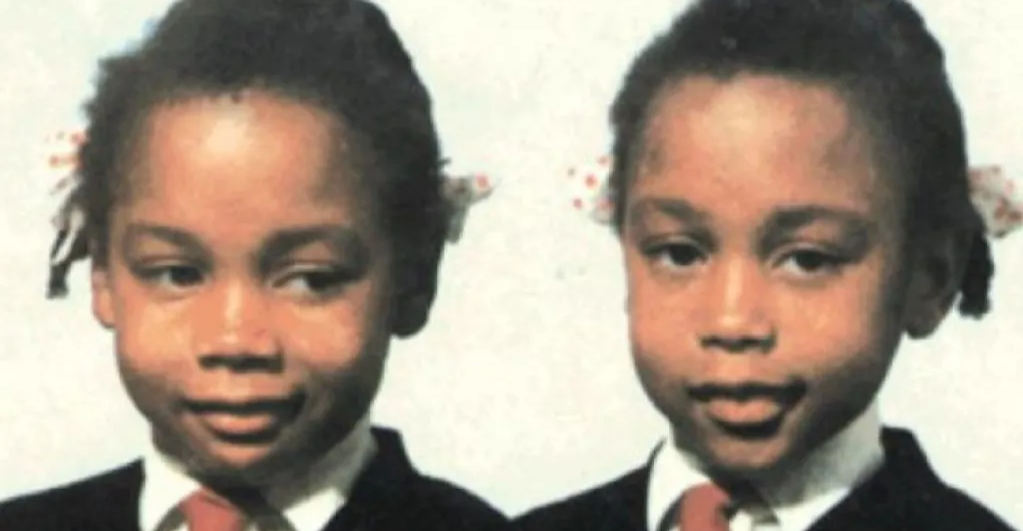June and Jennifer Gibbons were twins who made a pact at three years old to only communicate with each other. The pair upheld their agreement until Jennifer Gibbons died, freeing June to live among society. It was only through death that either could be liberated from the other. This passage from June encapsulates how irreversibly intertwined June and Jennifer were:
“One day she’d wake up and be me, and one day I would wake up and be her. And we used to say to each other, ‘Give me back myself. If you give me back myself, I’ll give you back myself.’”
June lives an everyday life following the mysterious death of her sister
June was older than her sister by ten minutes, yet most people believed that Jennifer was the manipulative sister. The twins, who immigrated to England with their parents and three siblings in the early 1960s, grew closer because of the abuse they endured.
They rarely stayed at one school for long, so the only constant was each other. Anne Treherne, a psychologist who examined the twins, opined that Jennifer controlled June using eye signals. Yet, she couldn’t explain the perfect synchrony of the twins’ actions.
Experts separated the twins to see if they could develop independent identities. However, the experiment failed: rather than branch out, June and Jennifer became isolated and seemed to give up on the will to live.
The separation resulted in the undesired outcome – it brought the twins closer together. June and Jennifer’s lives together weren’t entirely blissful. The pair engaged in near-fatal fights: June tried to drown Jennifer in the river; Jennifer tried to strangle June with a cord.
June wrote: “I feel like suicide, but will that help? I have fresh marks on my face to prove how distressing life is becoming with my twin sister. Have I the strength to kill her?” Yet, June and Jennifer fell ill whenever they were separated, as if linked by a sinister spell.
In 1993, authorities decided to transfer the twins to a lower-security Caswell Clinic in Wales. Author Marjorie Wallace talked to NPR about the bizarre conversation she had with the girls days before the transfer:
“Jennifer said, ‘Marjorie, Marjorie, I’m going to have to die,’ and I sort of laughed. Why are you going to have to die? You’re not ill.’ And she said, ‘Because we’ve decided.’”
Wallace realized the girls had decided that for one to truly live, the other had to die. The morning of their release, Jennifer laid her head on June’s shoulder and slipped into a coma. Doctors declared her dead less than 12 hours later. She passed away due to sudden inflammation of the heart.
June rejoined society a year after her sister’s death. She lives in the U.K. close to her family and, no longer linked to Jennifer, engages freely with anyone willing to listen.

June described the girls’ time at Broadmoor as twelve years of hell
June and Jennifer’s self-isolation from the world intensified as they grew older. In 2000, June told the New Yorker the girls prayed for divine intervention to help them speak to their loved ones, but help never arrived:
“We’d pray to Him not to let us hurt our family by ignoring them, to give us strength to talk to our mother, our father. We couldn’t do it. Hard it was. Too hard.”
The girls dropped out of school in their mid-teens, registered for unemployment, and retired into their room. The family could hear them talk and type but hardly ever saw the pair. Jennifer and June wrote books and novels and meticulously chronicled their lives in diaries.
At seventeen, Jennifer and June lost their virginity to the same boy. June didn’t enjoy sex, writing: “I have no feelings for sex. I think it’s mean and cruel. I just like back and let it happen. I want romance and emotional attachment; boys just use my body.”
The girls adopted a life of crime involving petty theft and arson. A judge sentenced them to indefinite detention at the high-security Broadmoor facility. The duo’s writing and creativity reduced significantly in Broadmoor due to the effects of the antipsychotic medication doctors pumped into their bodies. June summarized life at Broadmoor:
“We got twelve years of hell, because we didn’t speak. We had to work hard to get out. We went to the doctor. We said, ‘Look, they wanted us to talk, we’re talking now.’ He said, ‘You’re not getting out. You’re going to be here for thirty years.’ We lost hope, really.”
Investigators never got to the bottom of Jennifer’s untimely yet foreseen death. There was no evidence of poison in her system, ruling out suicide or murder. Some doctors opined that the medications given to the girls at Broadmoor caused the death. However, June took the same drugs and had no health complications.
June wrote in her diary: “Today my beloved twin sister Jennifer died. She is dead. Her heart stopped beating. She will never recognize me. Mom and Dad came to see her body. I kissed her stone-colored face. I went hysterical with grief.”
Jennifer’s death meant freedom for June. June told Wallace the pair had decided she would live for both of them. Jennifer’s gravestone features the following poem by June: “We once were two/ We two made one/ We no more two/ Through life be one/ Rest in Peace.”